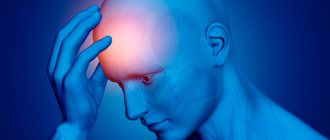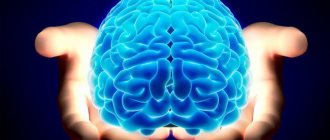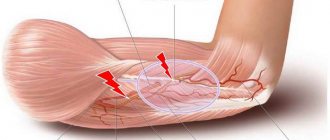Causes
Each of the neuroses that arise in a person is a consequence of a high concentration of stress hormones, which are produced in the human body as a response to external aggression. Nature provides such a mechanism only for real danger - the threat of physical violence. Meanwhile, the modern rhythm of life is accompanied by constant tension in the body due to moral dangers - intellectual overload, holding grievances against people around us.
The stress hormone does not have time to be completely utilized, and nervous spasms appear:
- the brain receives a signal about a threat from the outside;
- it is necessary to prepare the body to repel an attack - imaginary or real;
- the hormonal glands receive a command to increase the need for biological active substances;
- a new portion of stress hormones enters the bloodstream;
- the muscles become toned - for the fight.
When faced with daily moral overload, stress disorders, or monotonous, monotonous work, tension in the abdominal or shoulder girdle muscles leads to a deterioration in well-being. The problem becomes widespread and requires medical intervention.
According to Jacobson
E. Jacobson's method is one of the well-known methods of muscle relaxation. The exercises are based on alternating tension and relaxation of various muscle groups and the whole body as a whole.
The essence of the method is that after intense tension, the muscle tends to completely relax. Recommended for people experiencing severe mental stress.
It is necessary to take a comfortable position and get rid of tight clothes. Close your eyes and take a few calm breaths. Follow your feelings during the process, so you will feel your body better.
We strain our leg muscles. First, we bend and tighten our fingers; they need to be very tense, held, and then relaxed.
The next step is to stretch out the socks and follow the same pattern - tension and relaxation. After stretching, you need to pull the socks towards you. Now your legs need to be raised to a distance of about 20 cm from the floor.
The next step is to work with your hands. First, we clench our right hand into a fist, then do the same with our left.
Now each arm needs to be bent at the elbow, tense, hold and relax. Strain your hand, pressing it into the floor or any surface, hold it, then relax. Then repeat with the other hand.
Muscles of the back and abdomen. After inhaling, tense the abdominal muscles. Hold for a few seconds, remembering to feel the tension. Be sure to relax afterwards. Leaning on your heels, shoulders and elbows, lift your pelvis off the floor. Raise your chest for a few seconds.
Upper body. Raise your head, press your chin to your chest, tense your muscles, then relax. Wrinkle your forehead. Clench your jaw, relax. Purse your lips. Close your eyes with tension for a few seconds. We remember that first there is tension for a few seconds, then relaxation.
After tensing individual muscle groups, you need to tense the whole body at the same time, fix the tension, and then relax.
Progressive relaxation can be used daily and has been shown to be effective. For the most powerful effect, choose relaxation techniques that are right for you.
If you feel discomfort while doing it, it means you are using other ways to regulate your condition.
How to cope with chronic fatigue, relieve stress and calm your nerves? Relaxation technique:
Tense muscles of the body, as well as tense nerves, make it difficult to concentrate on current affairs, as well as to relax. A person simply biologically needs sleep and rest, but due to constant work, often even night time does not bring proper rest. In this article I will tell you how to learn to completely relax psychologically and physically.
Symptoms
With nervous tension, symptoms do not appear immediately - signs of muscle neurosis appear in response to a chronic, prolonged stay in a state of stress. At the beginning, people notice periodic, local tingling in a certain part of the body, or numbness in it. With this “bell”, muscle overstrain makes itself known. With timely provision of medical assistance, it is possible to quickly cope with such a health disorder.
If the psychological state does not improve - the situation remains emotionally unstable and difficult for a person, then emotional tension is transformed into muscle tension. Its symptoms:
- myofascial pain – a person accurately indicates the most problematic area;
- burning with tingling gradually increases in intensity of manifestations;
- the level of anxiety and nervous excitability increases;
- when the neck muscles are overstrained, headaches appear - diffuse, dull;
- various problems with sleep appear - with falling asleep, or intermittency, as well as a feeling of weakness in the body in the morning;
- if the facial muscles become tense, then facial expressions are distorted - involuntary twitching of its different parts;
- on the part of the cardiovascular system, manifestations will be in the form of tachycardia or cardialgia - pain in the heart muscle when muscles tense in the diaphragm area.
In a severe mental state, tension in the head with neurosis alone does not end the matter - convulsions and epilepsy form. Treatment tactics will require a comprehensive and long-term approach.
What is the ability to relax?
Relaxation - what is it? Modern man is predominantly in a tense state.
We experience stress at work, on the way home, at home, watching the news on TV, browsing the Internet, visiting the clinic, shopping and in many other cases.
In this regard, there is a need to relax and unwind. But, unfortunately, a tired, exhausted body no longer knows how to do this.
Constantly being in tension, we lose the ability to relax. The result is headaches, poor digestion, heart problems, and fatigue.
Relaxation is the ability to escape from reality, to forget for a while about conflicts, stress, health problems, and failures.
This is an internal state of peace and tranquility. You forget for a short time about the stressors constantly affecting you, and feel peace.
The ability to relax is to find ways to bring you to a calm state.
How to relieve muscle spasm
There are many recommendations and useful tips to relieve nervous tension in the muscles. Most of them are based on a reflex change in the nerve innervation of muscle fibers. So, if possible, it is better to completely stop communicating with those people who cause a lot of unpleasant emotions in a person - colleagues, boss, relatives. Of course, this step is radical and requires the application of certain efforts - dismissal from work, divorce from your spouse.
Less “extreme” ways to relieve muscle tension:
- prepare a soothing tea, for example, with chamomile, lemon balm or valerian and a drop of honey - drink in small sips, while still warm;
- turn on your favorite music and enjoy it until you feel like your muscles have relaxed;
- completely turn off all appliances, close the curtains and lie on the sofa with a wet cold towel on the back of your head - 15–20 minutes is enough to relieve mild tension;
- light an incense stick with your favorite scent and sit in silence;
- For those who are used to actively dealing with stress - how to relieve tension in the head, the best option seems to be a long walk in the nearest park or a visit to the pool.
Each person chooses for himself how to deal with muscle tension due to neurosis - just postponing events for a certain period of time is not worth it. Otherwise, medication will be required.
Massage for muscle strain
An obligatory component of complex therapy, how to relieve tension in the body during neurosis, is one of the massage techniques. The main movements are soft, stroking pressure. Tapping and pinching are unacceptable. It is recommended to perform the procedures in specialized rooms, where an experienced specialist, even with a cursory examination, will identify tense muscle areas - blocks.
Objectives of massage:
- reduce the influence of the autonomic nervous system;
- restore the patient’s psycho-emotional state;
- improve sleep;
- relieve hypertonicity of muscle groups;
- restore metabolic processes in tissues;
- increase lymph flow and blood circulation.
However, massage for neurosis is not always possible. Absolute contraindications are hyperthermia or severe psycho-emotional disorder with hysteria.
At home, it is permissible to perform self-massage - use soft stroking and pressure to knead the tense muscles of the back of the head, neck, face, and limbs. This will reduce the negative impact of stress and restore the emotional background. Whereas to relax your back muscles, it is better to use the services of a professional massage therapist.
Why am I always stressed?
I can't relax. The nervous system is working hard. The environment puts pressure on us, we are constantly forced to solve some issues, and additional stress factors affect us - noise, smells, poor ecology. This in turn causes internal tension.
Psychological and physical blocks and clamps appear, and then the moment comes when you are no longer able to fully relax.
All this is complemented by constantly present negative thoughts, experiences, and fears.
Living in big cities is stressful in itself. It is difficult for a modern person to deal with the everyday influences of the surrounding reality.
Have you noticed that when you are very tired, you cannot fall asleep quickly, and the sleep itself is intermittent and restless?
This happens because the nervous system is overstrained, excited, and difficult to calm down.
Water treatments
Water procedures are excellent for relieving muscle tension during neuroses. They can act as an independent method of treatment, or be part of a complex of measures.
So, a warm bath with the addition of essential oils - for example, eucalyptus, fir or rosemary, mint - allows you to relax as much as possible and eliminate muscle tension. In addition, it restores blood circulation due to its indirect effect on blood vessels and improves skin respiration.
Another popular water procedure is a contrast shower. It is recommended to be taken for many diseases, including nervous disorders and disruptions in the vegetative-vascular system. Charcot's douche is considered the most popular and useful. However, at home you can resort to a similar method of relieving muscle tension. However, a number of diseases - tuberculosis, skin infections, as well as tumors and cardiovascular failure, will be restrictions on water treatment procedures.
Drug therapy
In case of a severe reaction to stress and the absence of positive dynamics in non-drug measures to relieve muscle tension - various cramps and myalgia, the specialist will recommend special medications. They are selected from the following subgroups:
- tranquilizers – Sibazon, Dormikum, Phenozepam;
- antidepressants – Sertraline or Paroxetine;
- anticonvulsants – Finlepsin, Rivotril, Epilim;
- neuroleptics - Sonopax, Melleril, Eglonil.
Each subgroup has its own advantages, as well as restrictions on admission. Therefore, they are prescribed as a course only by a doctor. Self-medication is absolutely unacceptable.
Medicines eliminate stress during neuroses at the cellular level - from the inside. They are able to correct the production of stress hormones, affect a person’s emotional state, and improve the functioning of the nervous system as a whole.
All drugs that can relieve internal muscle tension due to neurosis are usually available at the pharmacy with a doctor's prescription. He also selects the optimal dose and duration of the treatment course. You cannot change them yourself - the risk of side effects is high.
Why am I always stressed?
I can't relax. The nervous system is working hard. The environment puts pressure on us, we are constantly forced to solve some issues, and additional stress factors affect us - noise, smells, poor ecology. This in turn causes internal tension.
Psychological and physical blocks and clamps appear, and then the moment comes when you are no longer able to fully relax.
All this is complemented by constantly present negative thoughts, experiences, and fears.
Living in big cities is stressful in itself. It is difficult for a modern person to deal with the everyday influences of the surrounding reality.
Have you noticed that when you are very tired, you cannot fall asleep quickly, and the sleep itself is intermittent and restless?
This happens because the nervous system is overstrained, excited, and difficult to calm down.
Physiotherapy
In addition to soothing teas and pharmaceuticals, muscle tension can be eliminated with physiotherapeutic procedures. Thus, electrophoresis with medicinal solutions - for example, bromine, potassium iodide, effectively restores blood circulation in the muscles and also relieves their spasms. As a rule, 6–8 sessions per collar area are sufficient.
A good method of influencing the area of tension is magnetic therapy. It eliminates smooth muscle hypertonicity. In hospital settings, large devices are used. However, it is possible to purchase a compact device and use it at home - as prescribed by a doctor, in courses.
Acupuncture also returns the joy of life to a person - a correctly performed procedure corrects blood and lymph flow, relieves tension in muscle blocks, and eliminates inflammation as needed. An experienced specialist, through exposure to a reflex point with a medical needle, copes with neurosis of stress etiology.
Doctors always recommend physical exercises and practical exercises that relax tense muscles. During sports activities, the production of the joy hormone increases, which has a positive effect on a person’s psychological mood. Exercise therapy complexes can be performed in the gym or at home. Their duration is 30–40 minutes. After which it is better to take a contrast shower - an additional boost of energy.
Prevention
Once faced with high-intensity muscle tension - a nervous tic or cramp, people no longer want to experience such unpleasant sensations. To do this, they need to master relaxation techniques - auto-training or yoga.
However, even the best methods of relieving psychological stress will not be as effective as measures to prevent neuroses:
- create a favorable psychological environment in the family - trusting, warm relationships with relatives;
- get a job in a friendly team;
- eat right - a variety of dishes, the predominance of vegetables and fruits in the diet;
- increase your level of physical activity - visit the pool, run in the park in the morning, sign up for Latin American dancing classes.
Of course, these are only external factors to prevent muscle tension due to stress. However, they effectively help cope with internal problems - negative emotions. For example, fear, anger, anxiety. It is because of them that neuroses arise. The ultimate goal of prevention is a healthy nervous system and the absence of muscle tension.
What is the ability to relax?
Relaxation - what is it? Modern man is predominantly in a tense state.
We experience stress at work, on the way home, at home, watching the news on TV, browsing the Internet, visiting the clinic, shopping and in many other cases.
In this regard, there is a need to relax and unwind. But, unfortunately, a tired, exhausted body no longer knows how to do this.
Constantly being in tension, we lose the ability to relax. The result is headaches, poor digestion, heart problems, and fatigue.
Relaxation is the ability to escape from reality, to forget for a while about conflicts, stress, health problems, and failures.
This is an internal state of peace and tranquility. You forget for a short time about the stressors constantly affecting you, and feel peace.
The ability to relax is to find ways to bring you to a calm state.











